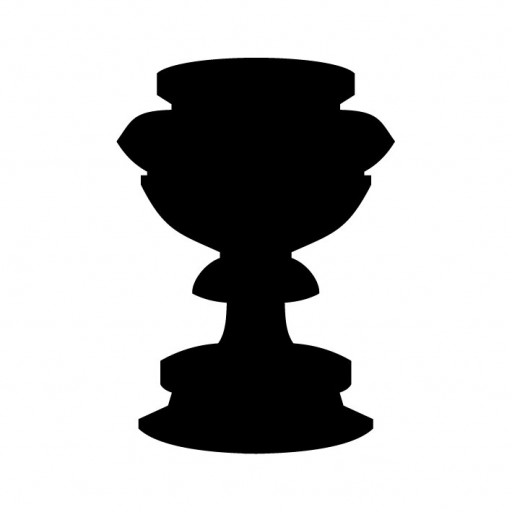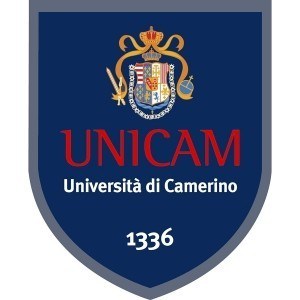Photos of university / #chalmers.university
The Master’s Programme in Industrial Design Engineering at Chalmers University of Technology is a comprehensive and innovative program designed to prepare students for the dynamic field of product development and design. This program combines engineering principles with creative design methodologies to empower students to create user-centered, sustainable, and technically feasible products and systems. Throughout the programme, students will develop a deep understanding of the entire design process, from conception and prototyping to manufacturing and implementation, with a focus on real-world applications and industry needs.
Students will acquire skills in human-centered design, ergonomics, materials, manufacturing techniques, and digital tools such as CAD and simulation software. The program emphasizes sustainable development, encouraging students to create solutions that are environmentally responsible and socially beneficial. Collaboration with industry partners is integrated into the curriculum, providing opportunities to work on live projects and gain practical experience in multidisciplinary teams.
The programme duration is two years, during which students can tailor their education through electives and specialization options, aligning with their career interests. Graduates will be well-equipped to pursue careers in product design, development, innovation management, and consulting within various sectors including automotive, consumer electronics, healthcare, and sustainable products. The international environment and strong links with industry ensure graduates are prepared to meet the challenges of modern industrial design, making a positive impact on society and the economy.
The Industrial Design Engineering program at Chalmers University of Technology is a comprehensive and innovative course designed to prepare students for a dynamic career in designing and developing innovative products and systems. This program combines engineering principles with creative design strategies to equip students with the skills necessary to address complex societal challenges through sustainable and user-centered solutions. Throughout the program, students will explore a range of disciplines including product development, materials, manufacturing processes, ergonomics, aesthetics, and digital design tools, fostering a holistic approach to industrial design. The curriculum emphasizes hands-on learning, encouraging students to work on real-world projects in close collaboration with industry partners, thereby bridging academic theory with practical application. Students will have access to state-of-the-art laboratories and workshops, enabling them to prototype and test their ideas effectively. The program also focuses on innovation, entrepreneurship, and systems thinking, preparing graduates to lead the development of future products that are environmentally sustainable, socially responsible, and economically viable. Interdisciplinary teamwork is a core component of the educational approach, reflecting the collaborative nature of contemporary industrial design work. In addition to technical expertise, students will develop strong problem-solving, communication, and project management skills. The program offers opportunities for international exchanges and collaborations, providing a global perspective on design challenges and practices. Upon graduation, students will be well-prepared for careers in product design, development, consultancy, or entrepreneurship in various sectors including automotive, furniture, consumer electronics, and more. The Industrial Design Engineering program at Chalmers is committed to fostering creativity, innovation, and a passion for sustainable development, preparing students to become leaders in shaping the future of industrial design.
Programme requirements for the Bachelor's programme in Industrial Design Engineering at Chalmers University of Technology are designed to ensure that applicants possess a solid foundation in mathematics, physics, and engineering principles. Prospective students should have completed upper secondary school with strong grades in science and mathematics subjects, including advanced courses in mathematics and physics. Proficiency in English is a mandatory requirement, demonstrated through standardized tests such as the IELTS or TOEFL, as the medium of instruction is English. For international applicants, a valid IELTS score of at least 6.5 overall with no section below 5.5, or a TOEFL iBT score of at least 90, is typically required. Swedish applicants must meet the Swedish upper secondary school requirements and demonstrate proficiency in Swedish.
Prior knowledge in design, technology, or computer-aided design (CAD) can be advantageous but is not mandatory. Applicants are expected to show motivation and interest in innovation, sustainable development, and user-centered design, which are core aspects of the programme. A strong academic record from high school or equivalent education is essential, with an emphasis on subjects like mathematics, physics, and technology. Admissions are merit-based, considering overall grades and the level of completed coursework relevant to engineering and design.
In addition to academic requirements, applicants are encouraged to submit a motivational letter explaining their interest in industrial design engineering, their personal goals, and how they intend to benefit from the program. Relevant extracurricular activities, projects, or work experience related to design, engineering, or creativity may strengthen the application. The selection process may also include interviews or assessments to evaluate problem-solving skills, creativity, and motivation.
Applicants must also comply with the specific entry requirements set by the Swedish Council for Higher Education, including verification of their education credentials if obtained outside Sweden. It is recommended to review the detailed admission criteria provided on the official Chalmers University of Technology website for the most accurate and updated information. Successful applicants are expected to be prepared for a rigorous academic environment that combines technical engineering education with creative design thinking, preparing them for careers in innovative product development and sustainable solutions in various industries.
Financing studies at Chalmers University of Technology for the Industrial Design Engineering program are structured to provide students with accessible options to support their education. The university offers a range of scholarships and financial aid opportunities designed to assist both domestic and international students in covering tuition fees and living expenses during their studies. For EU/EEA students, tuition fees are typically not charged, but students are encouraged to seek external scholarships and funding sources to support their living costs. Non-EU/EEA students are required to pay tuition fees, and many scholarships are available to help offset these costs. Chalmers provides several scholarship programs, including the Chalmers IPOET Scholarship, aimed specifically at international students and covering partially or fully the tuition fees. Applicants are usually assessed based on academic merit, motivation, and other criteria outlined in each scholarship's guidelines. Additionally, students are advised to explore external funding options such as national grants, loans, and private sponsorships. The Swedish government and various foundations offer scholarships and grants for international students, which can be applied for independently or through the university. Living costs in Gothenburg, where Chalmers is located, are estimated to be approximately SEK 10,000-12,000 per month, covering accommodation, food, transportation, and personal expenses. Students are encouraged to budget accordingly and consider part-time work opportunities permitted for students studying in Sweden to supplement their finances. The university provides financial advising services to help students understand available options, apply for scholarships, and plan their finances effectively. Overall, while tuition fees for non-EU/EEA students are a significant consideration, a combination of scholarships, external funding sources, and personal budgeting can facilitate successful completion of the Industrial Design Engineering program at Chalmers University of Technology.
Industrial Design Engineering at Chalmers University of Technology is a comprehensive program that combines engineering principles with creative design to develop innovative products and solutions. The program aims to equip students with a deep understanding of both engineering techniques and user-centered design processes, preparing them for the dynamic field of product development. Throughout the program, students engage in a thorough curriculum that covers areas such as material science, manufacturing processes, ergonomics, sustainable design, and digital prototyping. Emphasis is placed on hands-on learning, enabling students to work on real-world projects, often in collaboration with industry partners, fostering practical skills alongside theoretical knowledge.
The program offers a multidisciplinary approach, encouraging students to think creatively and analytically, with a focus on sustainable development and innovation. Students learn to use advanced tools such as computer-aided design (CAD), 3D printing, and virtual simulation to design, test, and refine their ideas. The coursework integrates principles from mechanical engineering, industrial design, and human factors engineering, providing a broad skill set applicable to various sectors including automotive, consumer electronics, furniture, and medical devices.
Chalmers emphasizes a collaborative learning environment, where teamwork, communication, and project management skills are developed alongside technical expertise. The program typically involves group assignments, design sprints, and competitions, preparing graduates to work effectively within multidisciplinary teams. Students are also encouraged to participate in international exchanges and internships, gaining global perspectives and industry experience.
The degree prepares graduates for careers as industrial designers, product developers, design engineers, and innovation managers. Many alumni find opportunities in leading design firms, manufacturing companies, or start their own ventures. Additionally, the program fosters entrepreneurial thinking and innovation, with various initiatives and support for students interested in developing their own products or startups.
Language of instruction is primarily English, attracting international students and faculty. The program's facilities include state-of-the-art laboratories, prototyping workshops, and collaborative spaces, providing an inspiring environment to nurture creativity and technical skills. Graduates from the Industrial Design Engineering program at Chalmers are well-equipped to contribute to sustainable and user-oriented product development worldwide, playing a significant role in the future of shape, function, and innovation in various industries.









